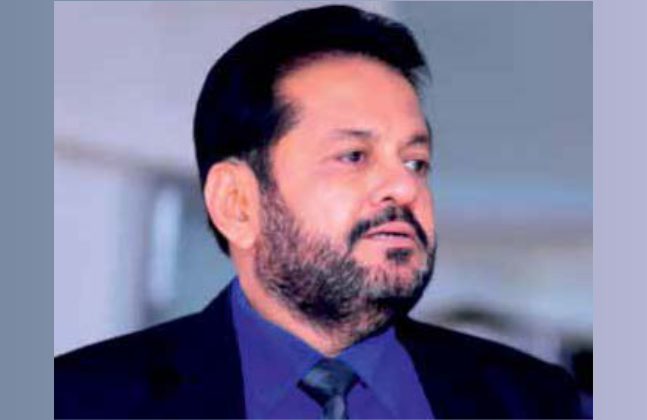[vc_row][vc_column][vc_column_text]
India’s dependence on imports of POL and petrochemicals is only going to increase in the future. Importers will favour the ports that can assure quick turnaround of liquid bulk vessels and provide seamless connectivity to the hinterland
Q How do you see India’s trade in liquid bulk cargo perform in the near future?
India’s dependence on liquid bulk cargoes will keep on increasing in the next five years, particularly, that of Petroleum, Oils, edible oils and other Petrochemicals. With increase in liquid bulk volumes in the next five years, liquid bulk trade will be a significant contributor to the Customs and Port Revenue.
Q Apart from coal which are the other bulk commodities that will provide sustainable volumes to Indian ports?
Apart from coal, other bulk commodities that will provide sustainable volumes to the Customs are undoubtedly liquid cargoes. With increasing volumes and growing dependence on Petroleum Oils and Edible Oils there is bound to be a significant surge in imports. Hence, liquid bulk volumes are certain to provide sustainable volumes to Indian Ports in future.
Q Do we have sufficient infrastructure for import and storage of liquid bulk on either coasts of India?
How can ports on the east coast capitalise on emerging opportunities? a.We do not have sufficient infrastructure for import and storage of liquid bulk on either coasts of India. There is an acute shortage of storage of liquid bulk coupled with not so satisfactory infrastructure in many of the ports. b. Ports on the eastern coast can certainly capitalize by creating adequate infrastructure for storage of liquid bulk with direct pipeline facility from the port to the installation. They can attract cargos by ensuring quick turnaround of liquid bulk vessels and proper evacuation processes, in the form of good road and railway network from the installation to the hinterland. This will reduce cost and will certainly tempt Importers to explore the possibility of utilizing Eastern Coast.
Q Chemical import/export requires specialised handling at ports. Are the major/private ports equipped with the right for handling chemical cargo? Not many of the major ports are equipped with right facility for handling chemical cargo,?
Not many of the major ports are equipped with right facility for handling chemical cargo, save and except, major ports like Mumbai which is well equipped for handling chemical cargo. Due to lack of infrastructure and shortage of storage space, not much of significant importance has been attached to specialized handling of chemical cargos at many ports.
Q What are the major challenges in liquid bulk cargo transportation?
The foremost challenge in liquid bulk transportation is availability of good motorable roads, which are free from traffic and encumbrance. Besides, there are other major challenges in the form of hurdles at the respective State Borders in processing of Interstate Transport Permits, yet another major deterrent is the security concern in form of pilferage and theft, which are rampant.
Q For moving hazardous chemicals – rail is said to be the preferred and safe mode. Do we have the required rail infrastructure for moving chemicals?
Yes, undoubtedly, Rail is a very safe mode of transport of hazardous chemicals but unfortunately, we do not have the required rail infrastructure due to acute shortage of wagons and other technical and rail traffic issues.
Q The coastal regulatory zone (CRZ) notification by the Ministry of Environment and Forests does not allow for storage of chemicals and petrochemicals in CRZ zones. How does this impact the export/ import of petrochemicals?
Due to CRZ notifications which prevent storage of chemicals in CRZ Zones will certainly impact export and import of Petrochemicals forcing them to shift their operations to other ports which have installations beyond 500 meters from the Sea. This may entail higher cost by pushing up the transportation cost for the importer.
Q AILBIEA recently has celebrated its 17th Anniversary. What are the major achievements of the association and what challenges you still see to be overcome?
The major achievements of AILBIEA are:
- Made significant in-road in the Finance Ministry by having regular interactions and meetings with the CBEC to discuss various issues concerning Liquid Bulk Trade.
- The significant achievement of AILBIEA has been the conferment of World Custom Organisation (WCO) Certificate of Merit on President, Jayyannt Lapsiaa, by the Finance Ministry thru’ CBEC which itself is a testimony to AILBIEA’s tremendous recognition at the Finance Ministry and CBEC levels.
- AILBIEA’s representation at the Commissionerate levels and also with that of Port authorities has been well accepted and appreciated by the Commissioners and Port Chairman.
- Challenges still to be overcome are the receipt of quick response from the CBEC to various representations made. Another major challenge is to bring about tremendous change in attitude and mindset of officers at lower level in (Customs and Excise departments)
Q One of your remark is that Government (read customs) is progressing well on implementing ease of doing business it is only trade that has to change mindset and adapt?
What is your advice to your members? Advise to our members would be to take part in association meetings regularly and also respond to various trade meetings called by the Customs and Port departments to attach more importance in focussing of various notifications issued by the department from time to time by ensuring that their officers are well equipped in reading and understanding of such notifications.
Q You have recently won World’s Customs Organisation Award? What is the significance of that award? The conferment of WCO Certificate of Merit is immensely significant and prestigious because it is the testimony to one’s dedication, commitment and sincere approach and interaction in Customs related matters and issues regularly. It also is recognition for ones dedicated efforts in providing useful inputs to the departments on various procedural issues and matters. It also enhances the credibility and reputation of the Association to greater heights.
[/vc_column_text][/vc_column][/vc_row]







